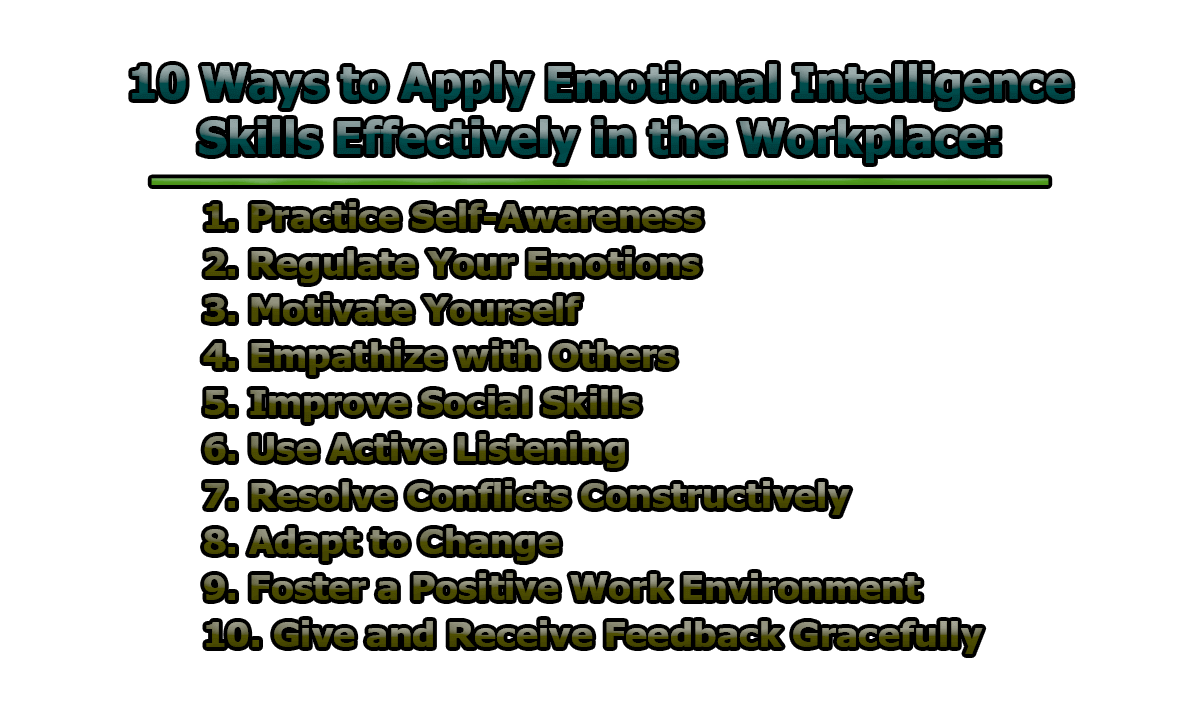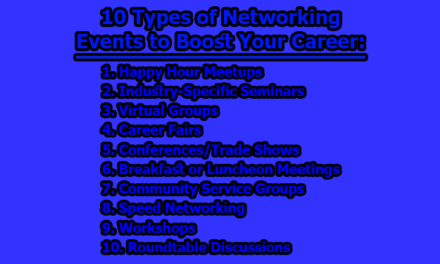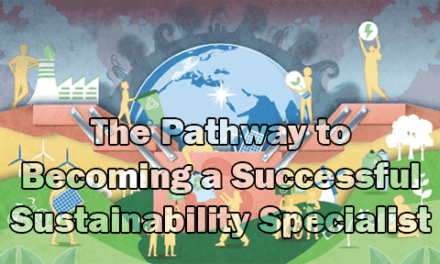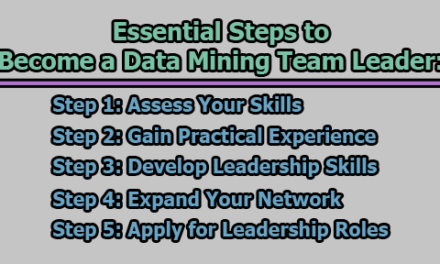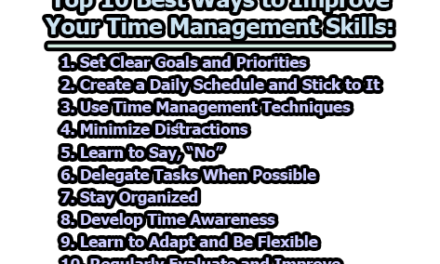10 Ways to Apply Emotional Intelligence Skills Effectively in the Workplace:
Emotional intelligence (EI) is increasingly recognized as a vital skill set in today’s professional environment. Coined by psychologists Peter Salovey and John Mayer and popularized by Daniel Goleman, EI refers to the ability to recognize, understand, and manage one’s own emotions as well as those of others (Goleman, 1995). In the workplace, this skill set can significantly enhance communication, leadership, conflict resolution, and overall organizational culture. Below are 10 ways to apply emotional intelligence skills effectively in the workplace.
1. Practice Self-Awareness: Self-awareness is the cornerstone of emotional intelligence and refers to the ability to accurately recognize and understand your own emotions, thoughts, and behaviors as they occur. In a workplace setting, this means being mindful of how your mood or stress levels influence your decisions, interactions, and productivity.
For example, a project manager who notices rising irritation during a team meeting might pause to reflect on whether this emotion is due to the team’s behavior or external stress. By identifying the true source, they can respond more appropriately, avoiding unnecessary conflict or poor decisions.
As Goleman (1995) emphasizes, self-awareness is the first component of emotional intelligence because it allows individuals to understand their internal states, which is essential for regulating behavior and managing relationships effectively.
Moreover, self-aware employees are more likely to seek feedback and recognize areas for growth, leading to continuous personal and professional development (Cherniss, 2010). This capacity helps them remain grounded and avoid overreacting to minor workplace issues.
2. Regulate Your Emotions: Emotional self-regulation involves managing one’s emotional responses in various situations, especially under pressure. It doesn’t mean suppressing emotions but rather acknowledging them and choosing how to express them constructively. In fast-paced or high-stress workplaces, this skill can prevent reactive decisions and help maintain professionalism.
Imagine a team leader who receives negative feedback from upper management. Instead of lashing out or becoming defensive, someone skilled in emotional regulation might take a break, reflect, and respond calmly—turning a potential conflict into a productive discussion.
According to Goleman (1998), individuals who excel in emotional regulation are typically more composed, trustworthy, and open to change—traits that foster healthier team dynamics and workplace culture.
Furthermore, emotionally regulated individuals contribute to a stable environment. Their composure often diffuses tense situations and encourages a more thoughtful and collaborative atmosphere (Bar-On, 2006).
3. Motivate Yourself: Self-motivation is the inner drive to achieve goals and maintain enthusiasm even in the face of setbacks. It is more than ambition—it is about setting personal standards, aligning with long-term objectives, and staying optimistic despite challenges.
For instance, consider an employee working on a long-term innovation project. When progress slows, a self-motivated person doesn’t get discouraged. Instead, they reassess strategies, look for new resources, and persist with purpose.
Goleman (1995) identified motivation as a core emotional intelligence component that fuels passion for work beyond status or money. These individuals are more productive, show stronger commitment, and typically outperform others in leadership roles.
Research also links emotional intelligence with goal orientation and resilience. Individuals with high EI are more likely to remain optimistic and resilient, adapting their approaches while maintaining their drive (Boyatzis, Goleman, & Rhee, 2000).
4. Empathize with Others: Empathy is the ability to recognize, understand, and share the feelings and perspectives of others. In the workplace, empathy enhances teamwork, trust, and employee engagement. It allows individuals to respond to colleagues with sensitivity and understanding, even in challenging situations.
For example, if a coworker is underperforming due to personal issues, an empathetic manager will approach the situation with care and offer support instead of immediate criticism. This strengthens the relationship and often leads to improved performance once the employee feels understood and valued.
Empathy is not just about being kind—it is a critical leadership skill. As Bar-On (2006) points out, empathy is essential for social awareness and contributes significantly to workplace harmony and employee satisfaction.
Empathetic leaders also tend to have better conflict-resolution abilities because they can consider multiple viewpoints and mediate disputes without bias (Goleman, 1998). This emotional intelligence competency is vital in managing diverse teams and promoting inclusivity.
5. Improve Social Skills: Social skills involve the ability to manage relationships, communicate effectively, inspire others, and work well in teams. In a professional environment, individuals with strong social skills are often perceived as approachable, persuasive, and capable of leading or collaborating with ease.
For instance, a team leader who notices low morale might organize an informal check-in or team-building activity. By doing so, they help address underlying issues and reestablish a sense of connection and purpose.
According to Salovey and Mayer (1990), emotional intelligence supports the development of social competencies such as influence, communication, leadership, and conflict management.
Employees with advanced social skills also excel in networking and building alliances within and outside their organizations. These skills make them effective collaborators and problem-solvers, enhancing overall productivity and morale (Goleman, 1995).
6. Use Active Listening: Active listening is a core emotional intelligence skill that involves fully concentrating on what the speaker is saying, understanding their message, responding appropriately, and remembering key information. It promotes mutual respect and reduces misunderstandings in the workplace.
For example, during a performance review, a manager practicing active listening would not interrupt the employee, would ask clarifying questions, and would summarize key points to ensure mutual understanding. This creates a safe space for honest feedback and collaborative growth.
Research indicates that active listening, a hallmark of high-EI individuals, leads to improved relationships, better teamwork, and higher job satisfaction (Cherniss, 2010).
Active listening also improves decision-making and innovation because it ensures that all voices are heard and considered, particularly in diverse or cross-functional teams (Jordan & Troth, 2004).
7. Resolve Conflicts Constructively: Conflict is a natural part of any workplace, especially in fast-paced or collaborative environments. Emotionally intelligent individuals are equipped to manage and resolve conflicts in ways that maintain respect and relationships rather than damage them. Constructive conflict resolution involves active listening, empathy, calm communication, and a focus on shared goals.
For example, when two coworkers clash over differing project approaches, an emotionally intelligent team leader would bring them together, help each articulate their perspective, and guide them toward a compromise that incorporates the best of both ideas.
Jordan and Troth (2004) found that team members with higher emotional intelligence levels are more effective at resolving conflicts and report greater satisfaction and cohesion in team settings.
Conflict handled poorly can escalate tensions and decrease productivity, but when managed with EI, it becomes an opportunity for growth, collaboration, and improved understanding.
8. Adapt to Change: Change is constant in the modern workplace—whether it’s adopting new technologies, restructuring teams, or shifting organizational goals. Adaptability, a key component of emotional intelligence, involves being open to new information, adjusting strategies, and staying optimistic through transitions.
Consider an employee whose role is redefined due to a company reorganization. Rather than resisting or complaining, an emotionally intelligent person would assess how they can contribute in the new setup, seek feedback, and look for learning opportunities.
According to Pulakos et al. (2000), adaptability is a form of performance behavior that is increasingly necessary and is closely linked with emotional intelligence.
Those who manage change effectively tend to influence others positively, helping teams transition smoothly and maintain performance during uncertain times.
9. Foster a Positive Work Environment: Emotionally intelligent individuals contribute significantly to a workplace’s emotional climate. Through their positive attitude, resilience, and ability to uplift others, they help create an environment where people feel safe, motivated, and respected.
For example, an emotionally intelligent coworker who notices a colleague feeling overwhelmed might offer support, words of encouragement, or help reframe a challenge in a more manageable way. This kind of support boosts morale and fosters a sense of camaraderie.
Carmeli (2003) found that employees with high emotional intelligence exhibit more organizational citizenship behaviors—such as helping others and going the extra mile—which contribute to a more positive and productive work culture.
A positive work environment reduces stress, improves retention, and enhances overall employee well-being, making EI not just a personal asset, but an organizational necessity.
10. Give and Receive Feedback Gracefully: One of the most valuable emotional intelligence skills in the workplace is the ability to give and receive feedback in a constructive, respectful, and growth-oriented manner. This involves managing your emotional reactions to criticism and delivering your own feedback in a way that uplifts rather than discourages others.
For instance, an emotionally intelligent supervisor delivering feedback on a missed deadline would focus on specific behaviors rather than personal shortcomings, and offer suggestions for improvement rather than blame. On the receiving end, an emotionally intelligent employee would accept the feedback calmly, reflect on it without defensiveness, and take proactive steps to improve.
According to London (2003), emotional intelligence enhances the effectiveness of feedback interactions by fostering openness, reducing defensiveness, and encouraging continuous learning and performance improvement.
Furthermore, regular, emotionally intelligent feedback loops create a culture of trust and accountability. Teams where people feel safe to give and receive honest input are often more agile, innovative, and aligned in their goals.
This skill also involves knowing when not to give feedback—such as avoiding emotionally charged moments where the message may be misunderstood or cause harm. Timing, tone, and empathy are all essential components of feedback delivered with emotional intelligence.
In conclusion, emotional intelligence is not just a personal trait—it is a professional asset. Applying EI in the workplace fosters better communication, teamwork, leadership, and job satisfaction. By practicing self-awareness, regulating emotions, motivating oneself, and developing social competencies, employees can contribute meaningfully to their organizations. As workplaces continue to evolve, emotional intelligence will remain a key differentiator for individual and organizational success.
Frequently Asked Questions (FAQs):
What is emotional intelligence, and why is it important at work?
Emotional intelligence (EI) is the ability to recognize, understand, and manage your own emotions while also being able to perceive and influence the emotions of others. In the workplace, this means staying calm under pressure, communicating effectively, showing empathy, resolving conflicts peacefully, and building strong relationships with colleagues. People with high EI are usually better at working in teams, leading others, and adapting to changes—making them valuable assets in any organization.
Is emotional intelligence something you’re born with, or can it be developed?
While some people may naturally be more emotionally attuned, emotional intelligence is not fixed—it’s a skill that can be developed over time. Through self-reflection, emotional awareness, training, and consistent practice, anyone can improve their EI. It involves learning how to pause before reacting, consider other perspectives, give and receive feedback, and build stronger emotional awareness in daily interactions.
How can I tell if I have emotional intelligence?
Some signs of strong emotional intelligence include being aware of your emotional triggers, handling stress well, resolving conflicts peacefully, showing empathy toward others, and being able to manage your reactions in tense situations. You’re also likely to get along well with colleagues and are open to feedback. If you’re unsure, you can take self-assessment quizzes or ask for feedback from people you trust.
How is emotional intelligence different from IQ?
IQ, or intelligence quotient, is a measure of cognitive abilities like logic, reasoning, and problem-solving. Emotional intelligence, on the other hand, focuses on emotional and social skills—such as understanding emotions, managing reactions, and building relationships. IQ might help you get a job, but emotional intelligence helps you keep it, thrive in it, and grow into leadership roles.
Why is emotional intelligence essential for leaders?
Leaders with high emotional intelligence are more effective because they can manage their own emotions, understand the feelings of their team members, and respond in thoughtful, inspiring ways. This allows them to build trust, motivate teams, give constructive feedback, and handle setbacks or crises with composure. Emotionally intelligent leaders are also better at guiding others through change and uncertainty.
How does emotional intelligence influence team performance?
In team environments, emotional intelligence fosters collaboration, mutual respect, and open communication. Team members with high EI are more likely to listen actively, empathize with one another, and work through disagreements in healthy ways. This leads to stronger bonds, reduced conflict, and greater overall productivity. Teams with strong EI are also more adaptable and innovative, especially when facing pressure.
What are some common signs of low emotional intelligence in the workplace?
People with low EI often struggle to manage stress, respond poorly to feedback, and may have difficulty empathizing with others. You might notice frequent arguments, passive-aggressive behavior, poor listening habits, a lack of accountability, or someone being overly reactive or emotionally distant. These behaviors can disrupt team dynamics and lower morale.
What are some practical ways to improve my emotional intelligence?
You can start by developing self-awareness—notice your emotional responses in different situations. Practice pausing before reacting and consider how your words or actions might affect others. Learn to manage stress through breathing techniques or mindfulness. Make an effort to truly listen when others speak, and ask questions to better understand their point of view. It also helps to reflect regularly on your interactions and seek honest feedback from others to identify areas for growth.
Is emotional intelligence more important than technical or job-specific skills?
Both are important, but emotional intelligence often determines how well you apply your technical skills in real-world settings. For example, a technically brilliant employee who can’t communicate well or work with others may struggle in a collaborative team. On the other hand, someone with moderate technical skills but high EI may lead a team successfully, navigate change effectively, and build stronger workplace relationships—all of which are essential for long-term success.
Should companies consider emotional intelligence in hiring and performance reviews?
Yes. More companies today recognize that hiring someone with strong emotional intelligence leads to better team dynamics, higher employee engagement, and fewer workplace conflicts. Emotional intelligence is especially important in roles that involve teamwork, customer service, or leadership. It can also be a key factor in promotions and career growth, since emotionally intelligent employees often demonstrate strong leadership potential and problem-solving ability under pressure.
References:
- Bar-On, R. (2006). The Bar-On model of emotional-social intelligence (ESI). Psicothema, 18(Suppl), 13–25.
- Boyatzis, R., Goleman, D., & Rhee, K. (2000). Clustering Competence in Emotional Intelligence: Insights from the Emotional Competence Inventory (ECI). In R. Bar-On & J. D. A. Parker (Eds.), Handbook of Emotional Intelligence (pp. 343-362). San Francisco: Jossey-Bass.
- Carmeli, A. (2003). The relationship between emotional intelligence and work attitudes, behavior and outcomes: An examination among senior managers. Journal of Managerial Psychology, 18(8), 788–813. https://doi.org/10.1108/02683940310511881
- Cherniss, C. (2010). Emotional intelligence: Toward clarification of a concept. Industrial and Organizational Psychology: Perspectives on Science and Practice, 3(2), 110–126. https://doi.org/10.1111/j.1754-9434.2010.01231.x
- Goleman, D. P. (1995). Emotional intelligence: Why it can matter more than IQ for character, health and lifelong achievement. New York: Bantam Books.
- Goleman, D. (1998) Working with Emotional Intelligence. Bantam Books, New York.
- Jordan, P. J., & Troth, A. C. (2004). Managing Emotions During Team Problem Solving: Emotional Intelligence and Conflict Resolution. Human Performance, 17(2), 195–218. https://doi.org/10.1207/s15327043hup1702_4
- London, M. (2003). Job Feedback: Giving, Seeking, and Using Feedback for Performance Improvement (2nd ed.). Psychology Press. https://doi.org/10.4324/9781410608871
- Pulakos, E. D., Arad, S., Donovan, M. A., & Plamondon, K. E. (2000). Adaptability in the workplace: Development of a taxonomy of adaptive performance. Journal of Applied Psychology, 85(4), 612–624. https://doi.org/10.1037/0021-9010.85.4.612
- Salovey, P., & Mayer, J. D. (1990). Emotional intelligence. Imagination, Cognition and Personality, 9(3), 185–211. https://doi.org/10.2190/DUGG-P24E-52WK-6CDG

Library Lecturer at Nurul Amin Degree College

